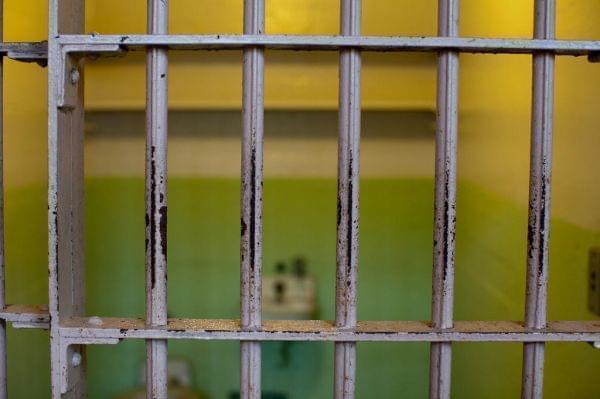Video Court Hearings Could Help Bottom Line, Hurt Kids

Dave Nakayama/Flickr (CC-by 2.0)
A new proposal in Illinois aims to reduce the time juveniles spend behind bars before their trial, but some argue it might not be in the best interests of the young people accused of wrongdoing.
The legislation mandates a detention hearing, in which a judge determines whether a juvenile needs to stay in custody, within 48 hours of an arrest.
It also allows court appearances via video conferencing, which could save time and money spent transporting youth to and from court.
“If you live in a rural area...you can spend anywhere one to three hours being taken to a detention center and then the same time returned,” said John McCabe with the Illinois Probation and Court Services Association. “Each time, it’s a round-trip for the sheriff’s deputies — usually two — that have to take somebody.”
Under current law, juvenile detention hearings have to take place within 40 business hours — not including weekends and holidays.
The lawmaker sponsoring the legislation, Sen. John Mulroe, a Democrat from Chicago, said video conferencing should make it easier for rural counties to meet the new guidelines.
But Ben Ruddell, with the ACLU of Illinois, said the technology can dehumanize the defendant.
“It makes it easier for a judge to make a detention decision without considering the individual as a human being, and it prevents them from effectively communicating with their attorneys,” Ruddell said.
The accused would be allowed a private phone call with an attorney, but opponents of the legislation argue that’s not the same as being able to lean over and ask questions in the moment.
Proponents counter that travelling to court limits the juvenile’s access to other resources, such as counseling, which they could receive at the detention center.
Still, Ruddell said it’s not clear whether the legislation would benefit more people than it could potentially harm.
The new time requirement for detention hearings would only expedite the process for kids arrested over the weekend or a holiday, he said. Meanwhile, the outcome of the detention hearing can have significant consequences.
“Children who spend time in detention are much less likely to graduate from high school. They’re isolated from their families and communities,” Ruddell said. “Even if they’re detained for a short period of time, the risk of suicide, recidivism, disruptions in school [and mortality rates] all go up.”
Video hearings are allowed for adult defendants in some pre- and post-trial hearings. Cook County stopped the practice in 2009.
Links
- Long-Term Effects of an Early Childhood Intervention on Educational Achievements and Juvenile Arrest
- Preparing For Cold Weather; Juvenile Life Sentences; Mosque Bombing Pleas; Antibiotic Overuse
- Illinois Issues: Online Learning Can Open Doors For Kids In Juvenile Jails
- Testing for Krabbe Disease; The Juvenile Justice System; Rockford Brothers’ ‘Letters from War’
- Illinois Commission Wants Tighter Law On Sharing Juvenile Criminal Records

